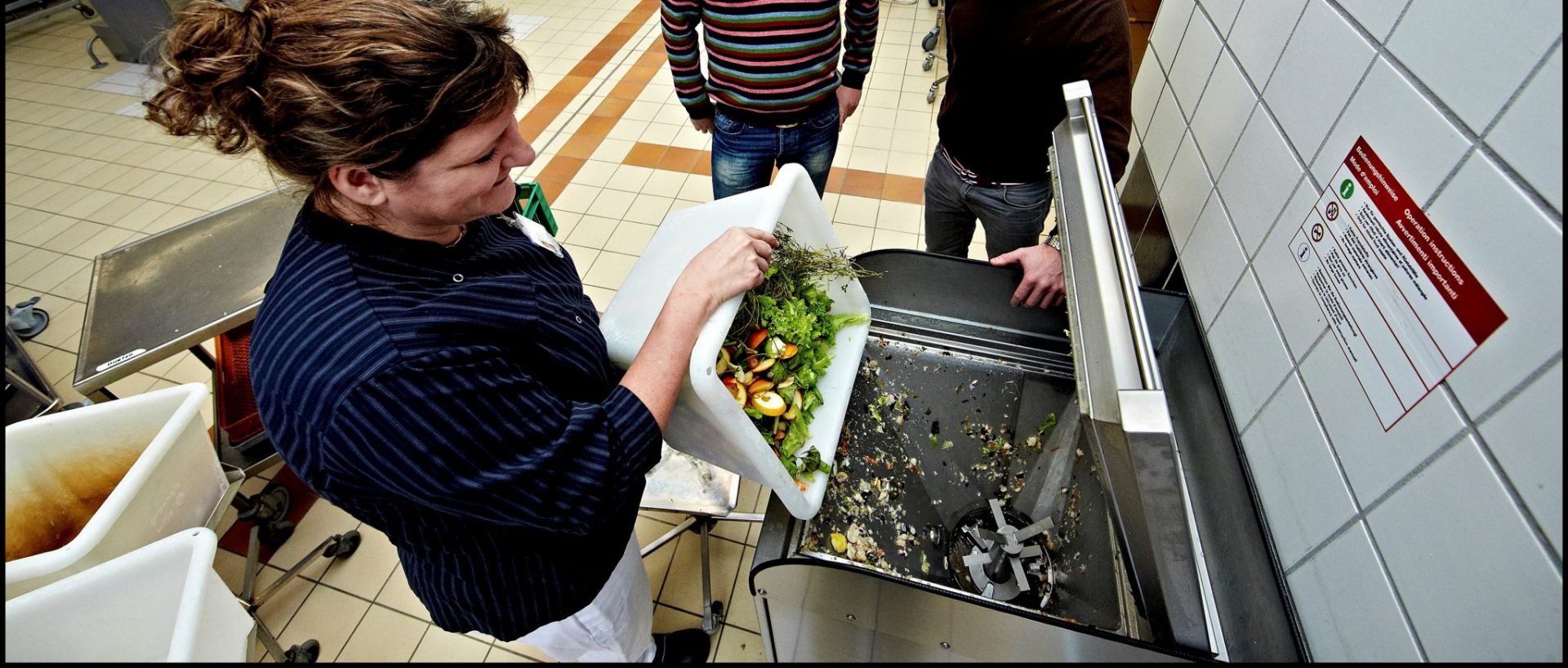Turning industrial food waste into biogas
In large scale industrial kitchens, waste handling is an inherent part of daily operations. Leftover peels from e.g. carrots, fish bones or drained coffee grounds is normally quite impractical to recycle in large-scale kitchens. Danish company Biotrans has developed a complete solution to industrial kitchens for recycling organic waste properly.
Turning waste into biogas
The solution consists of an in-house waste shredder called BioMaster, that breaks down food waste and transports it to a bio tank either underground or outside the kitchen. The bio tank will automatically be emptied by Biotrans’ partners when full. The tank is equipped with an active carbon filter which assures that no foul smells escape the tanks. The food waste is then transported to and converted into biogas at a biogas facility. Leftovers from the gasification process are turned into fertilizer.
The food waste is transported to and converted into biogas at a biogas facility. Leftovers from the gasification process are turned into fertilizer
The food waste from Biotrans does not undergo energy consuming preliminary treatment prior to the gasification process. This is possible due to the purity of the waste, which is completely free of plastic and metals, enabling it to be directly transported to the biogas facility from industrial kitchens.
Easy handling spares employees
Handling big amounts of waste is often a heavy workload that strains the backs and shoulders of kitchen staff. With the BioMaster in-house solution, food waste can be disposed with no need for filling large waste bags. Simply scraping a dish off or emptying a waste bucket directly into the shredder will suffice, as the bio tanks can contain enormous amounts of waste compared to normal waste bins.
Good for both staff and economics
The Biotrans solution has been implemented in many industrial kitchens already, amongst them at Legoland, Nordea and the National Danish Hospital in Copenhagen (Rigshospitalet), helping staff in their daily routines. But further, the expenses from weekly handling of waste bins are also cut due to the volume of the bio tank, as it only has to be emptied every 4 to 6 weeks. In summary: BioMaster is both an environmentally, economically and socially great solution for handling food waste.


